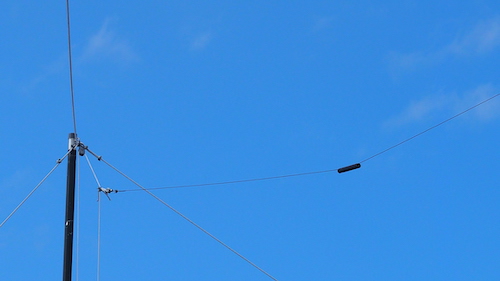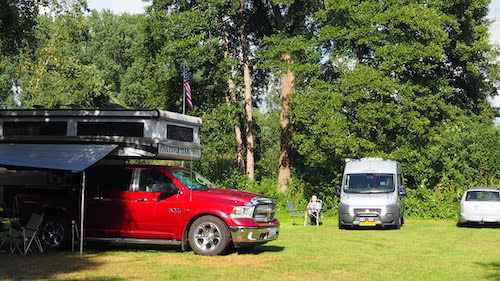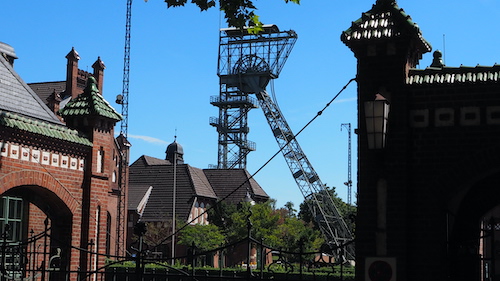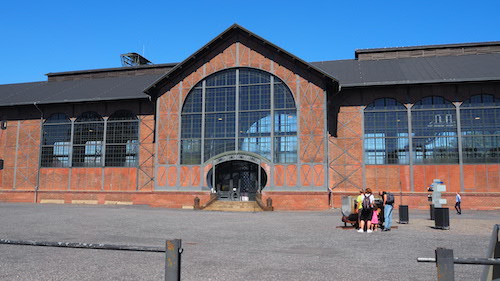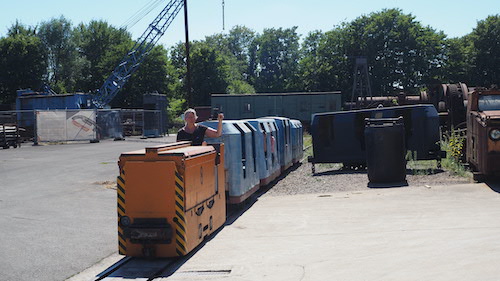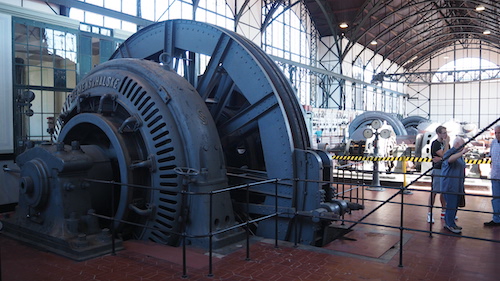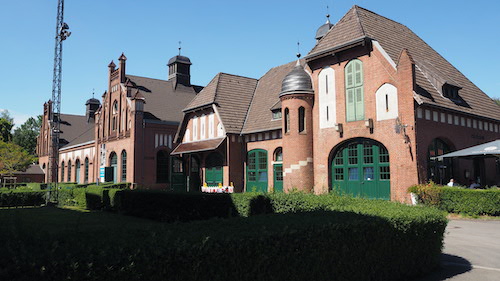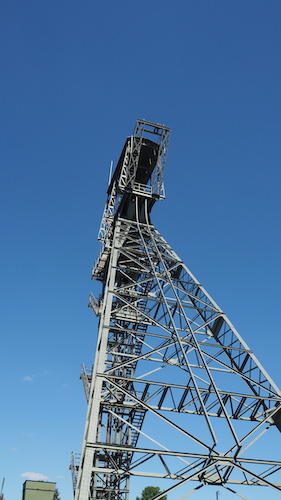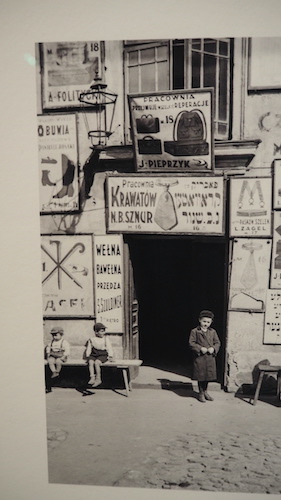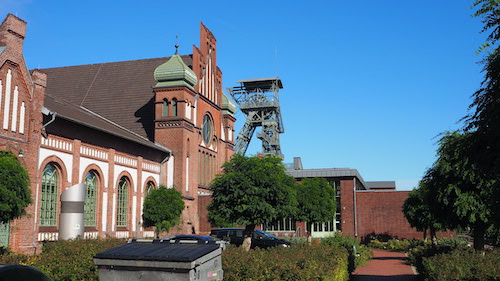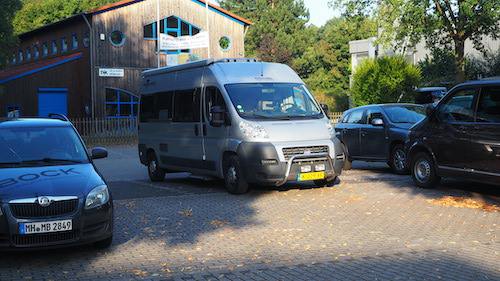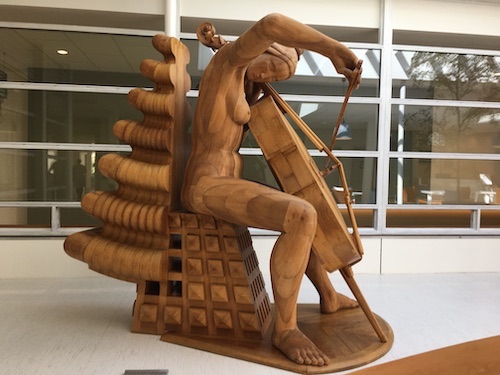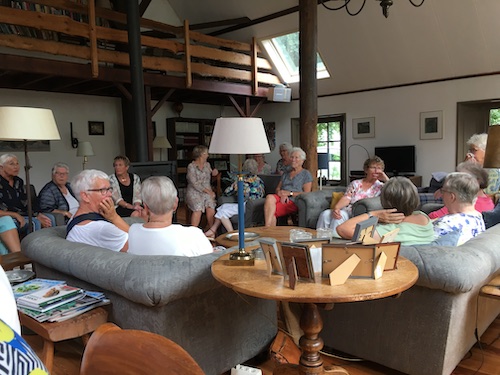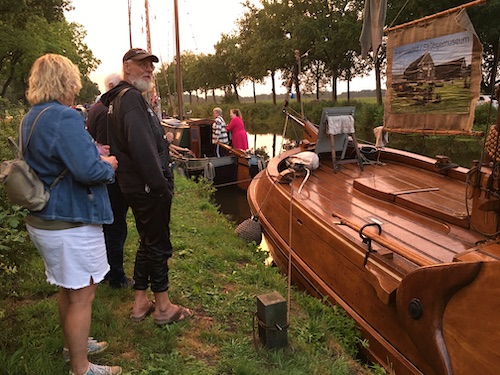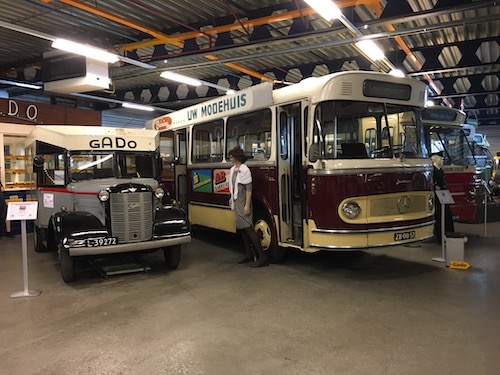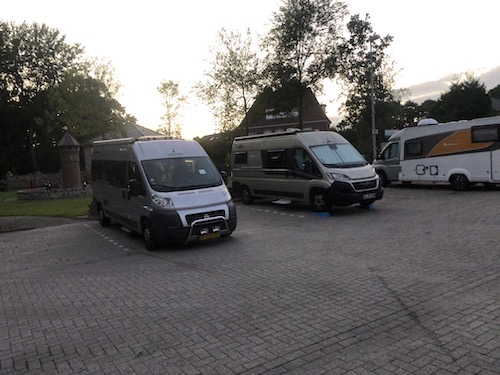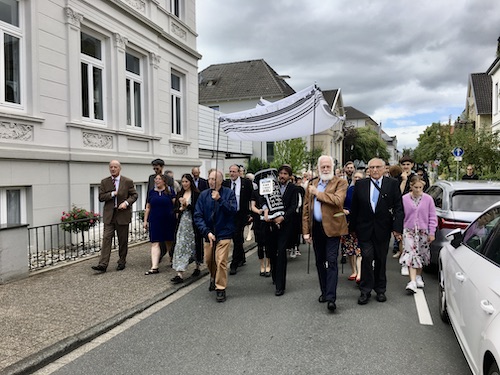2022 July-September
After getting my full license it was time to build an antenna. Together, Sylvia and I erected an endfed multiband 10/15/20/40/80 m with an extension coil for 160m.
The aluminum masts come from last month's ham flea market, the electronic components from Dutch firm HF Kits , the rest of the hardware from local DIY store Hubo.
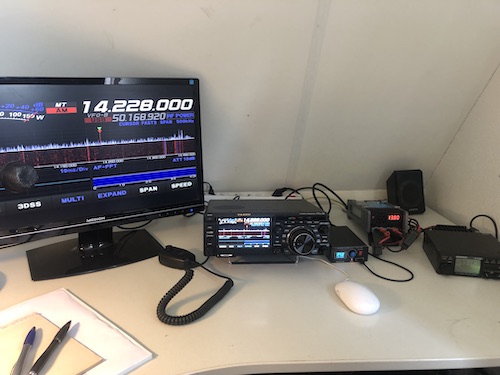
As HF transceiver I purchased a Yaesu FTDX10, a recent model with excellent reviews and connected it with some peripherals to make life easier.
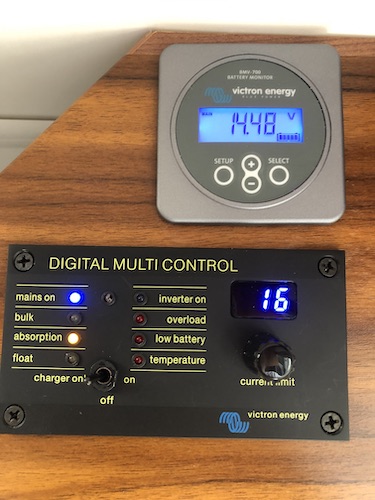
Meanwhile, the improvements to our camper van continue steadily. Instead of the three-position switch, we have invested in a remote control for the Multiplus charger/inverter that provides a little more information.
In July, our village celebrated its annual festival week, with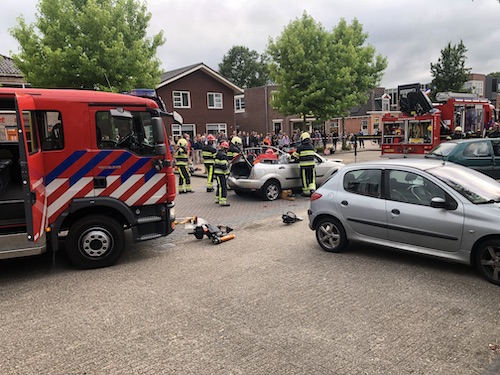
demonstrations by the volunteer fire brigade,
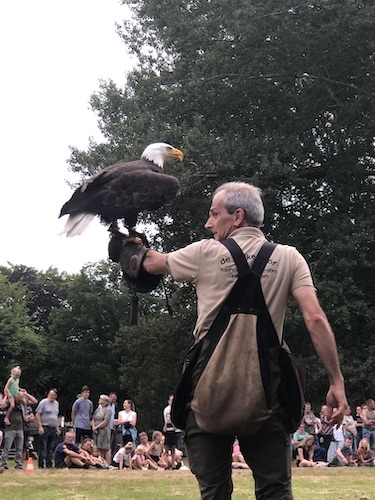
an impressive falconry show
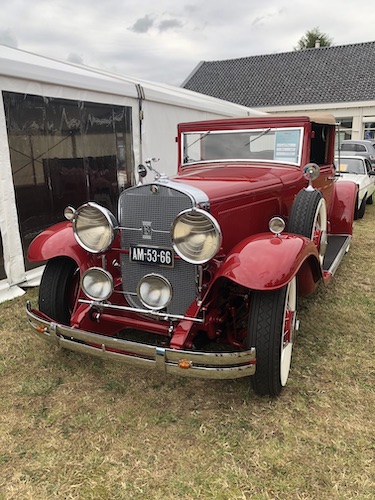
and a neighbourhood festival, enlivened by a display of oldtimers.
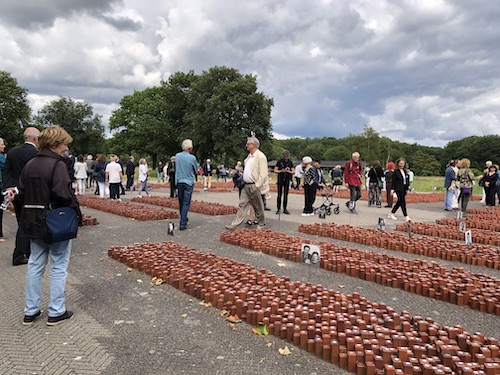
On 15 July we attended the commemoration of the first transport from Westerbork to Auschwitz. Sylvia's father was on the transport list, but managed to get himself removed from the list at the last moment.
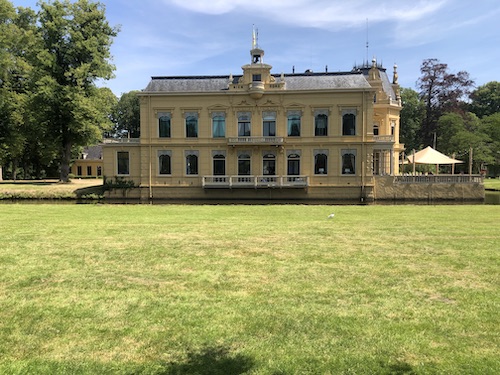
In search of suitable venues for a party later this year, we went for a drink and a bite at Grand Café Borg Nienoord in nearby Leek.
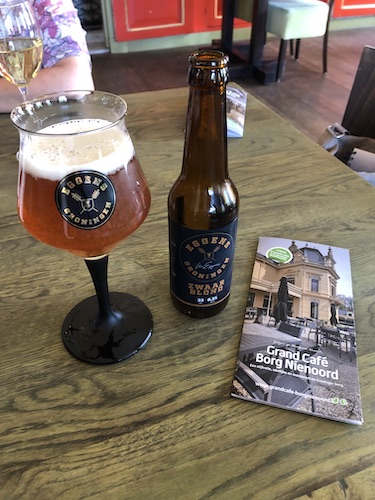
On the advice of the waiter, I tried a beer from a regional brewery that was unknown to me. No regrets!
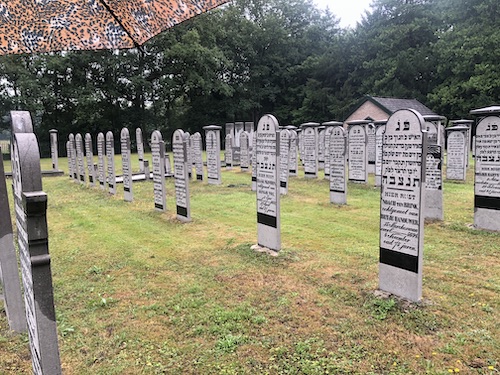
The Jewish cemetery in Assen is in a beautiful condition.
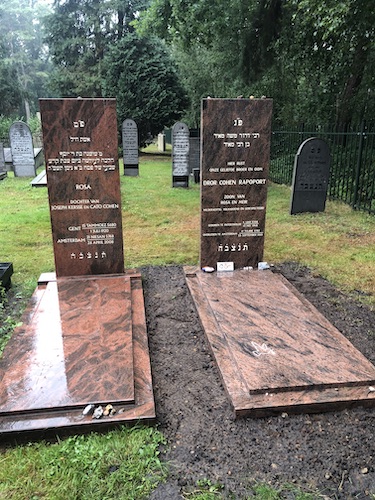
On 31 July, we attended the unveiling of the matsewah of our friend Dror, who passed away last year.
At the beginning of August, our friend from many years, country singer Ottilia, performed at the Western Café "Westernhof" in Osterwald, Germany. Westernhof has places for tent campers, bikers and motor home owners. How convenient!
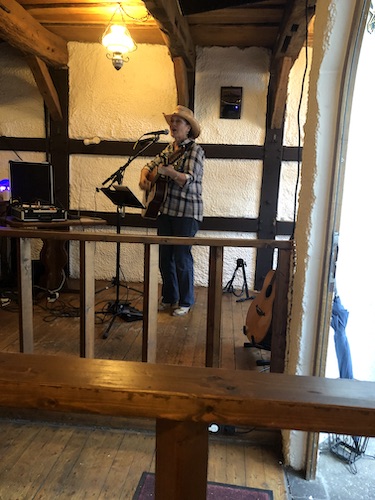
Ottilia used to be the lead singer of a band, but now she sings solo. For second voice and background choirs, she has turned to digital electronics.
On our way to Düsseldorf, we stop to visit the Zeche Zollern Industrial Museum in Dortmund. We have seen the towers above the mine lift shafts from the car countless times, but have never had the opportunity to take a closer look at the museum.
The Zollern colliery in Dortmund is one of the most beautiful testimonies to Germany's industrial past. The engine house with its stained-glass Art Nouveau entrance is an industrial heritage icon made of steel and glass.
The little train that once carried the miners through the mine galleries.
The gigantic inverters that powered the lifts.
In the former horse stable there is a café/restaurant, where it is good to rest a while.
The Zollern colliery was built between 1898 and 1904 as a prestige object by the
Gelsenkirchener Bergwerks AG, as a sign to competitors that it was the leading mining
company on the market. The expensive building designs, the social pretensions and
the technical innovations in the equipment were all meant to demonstrate the
company’s power and representational ambitions. This “model colliery” was meant to
demonstrate status.
In the exhibition room at the complex, we find the current changing exhibition: With camera and typewriter through Europe, dedicated to the work of Erich Grisar.
Besides photos from Amsterdam and Paris, among others, there are also photos from Warsaw, which clearly show the Jewish presence.
We stayed until closing time. A day well spent!
Our planned overnight stay, a small park at the Ruhr River in Essen, turned out to be completely occupied by families having picnics, due to the beautiful weather.
So we drove on to Mülheim on the same Ruhr, where we had camped before.
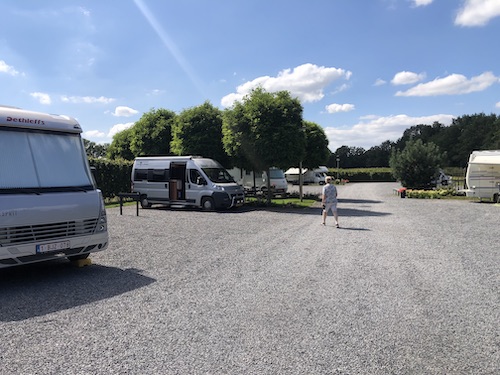
In order to be close by the next day for a medical appointment in Brabant (Netherlands), we spent the night at a luxury motorhome site in Oirschot. Fortunately, it was not as busy as on the website's homepage.
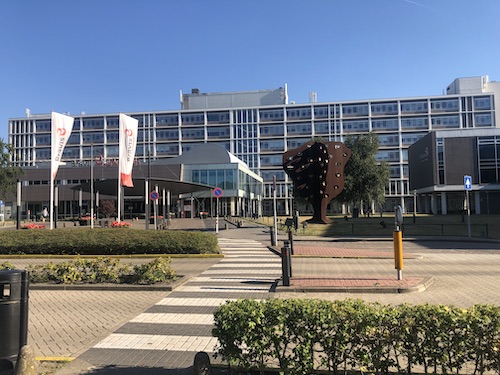
The next day, I (Ernst) have an appointment with a pain management specialist in the Bravis hospital in Roosendaal. He must put an end to the painful and itching trigeminal neuralgia, a left-over of the shingles of 2019. After getting acquainted and evaluating my case, the specialist gives the green light. I visit the admissions nurse, the anaesthetist and the pacemaker technician. Nothing stands in the way of the treatment early tomorrow morning.
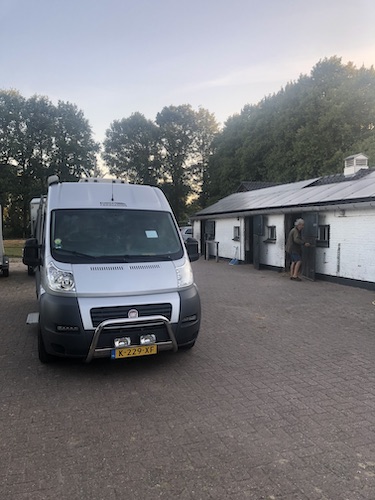
We seize the opportunity to visit Markus and Ko, with whom the friendship goes back to the 1960s, in their beautiful farmhouse-style home. Our van stands quietly next to the horse stable.
At dawn, we drive to Roosendaal, just a quarter of an hour away.
While I undergo the procedure (electrically heating the first branch of the trigeminal nerve), Sylvia looks around the hospital. It is beautifully decorated with modern art objects. In some places, you feel as if you are in a museum.
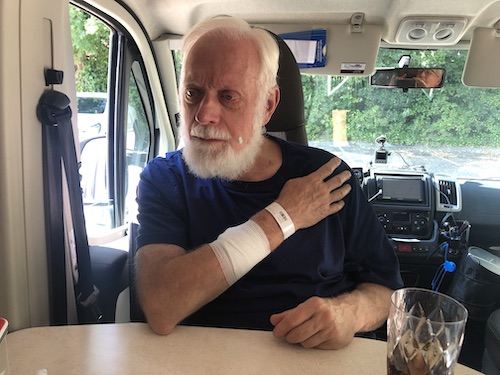
Early in the afternoon I am allowed to go home. That is to say, because I have had sedation a few hours before, I am not allowed to drive. So, for the time being, we stay in our van in the hospital car park. We knew this in advance, so it was already calculated in.
Improvement is due in four to six weeks.
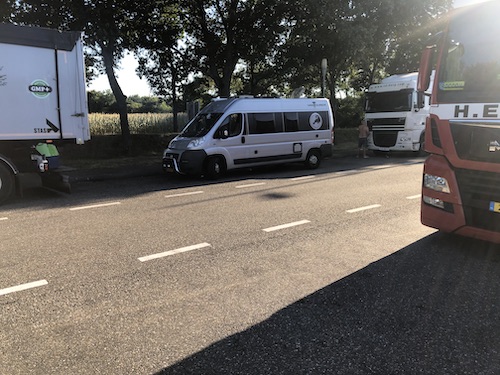
The second part of the night we sleep at a car park in Rucphen, not far from Roosendaal.
Back home, the next item on Sylvia's agenda is a members' meeting of the association Women of Today. Despite the beautiful weather, the meeting is well attended because decisions must be made about the future of the local branch of the association.
Our German friends Stevie and Sabine are coming to stay with us for two days. We take them to the peat boating days on the canal in Appelscha.
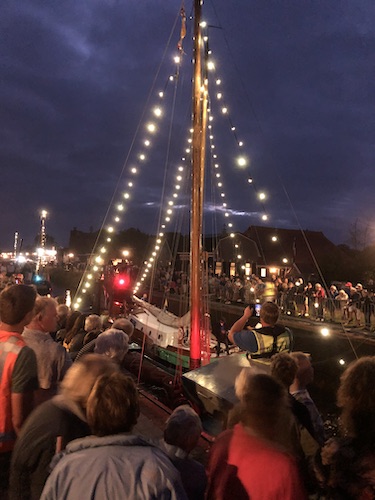
It is a festive sight when the illuminated ships are locked in the middle of the village.
Because Stevie has been involved in bus transport his entire working life, we go to the National Bus Museum in Hoogezand. Unfortunately, part of the museum is closed to the public, due to flooding caused by the downpour the previous day.
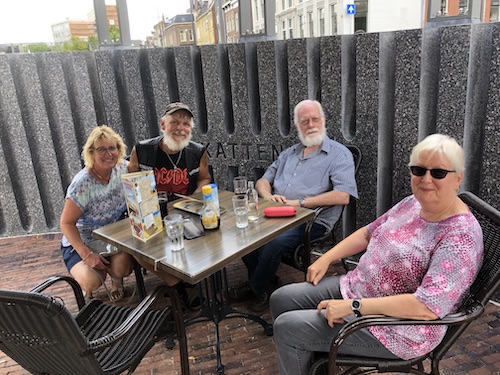
Stevie and Sabine invite us for a pancake on board the pancake ship in Groningen. Because of the warm weather, we prefer to sit on the terrace, next to the ship.
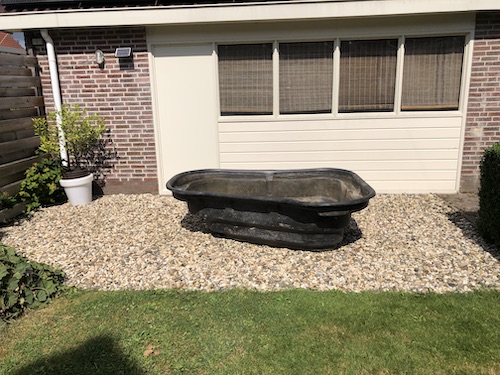
Inspired by a photo on Facebook, we had planned to liven up the dull gravel area in front of the garage with a pond. When a used pond was offered nearby, we seized the opportunity. From now on, it will be reorganizing and digging....
Our next trip leads us to Germany again, to Oldenburg this time. We cut the trip in half and spend the night in a car park in the centre of Apen. We are not the only ones.
In Oldenburg, we celebrate the 30th anniversary of the Jewish community. The celebration is enhanced by the bringing in of a new Torah scroll. It is my honour to help carry out the chupah.
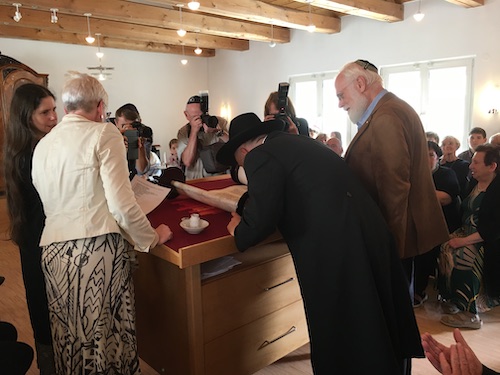
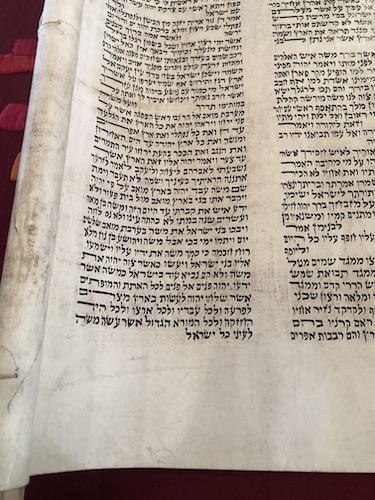
The final result.
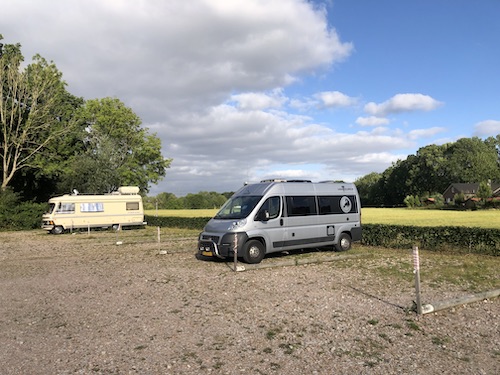
On Monday morning we have to pick up some electronics from Reichelt in Sande, in the Oldenburg region. A few hundred metres from the pick-up point is a motorhome site.
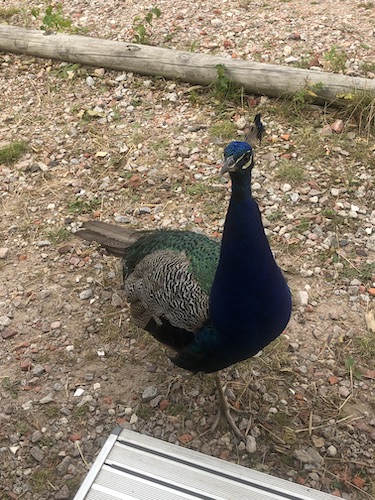
During our evening drink, we are visited by a curious and hungry Captain Peacock. Peacocks love tortilla chips. The peacock lives, with his wife and their two chicks, in the nearby tea garden.
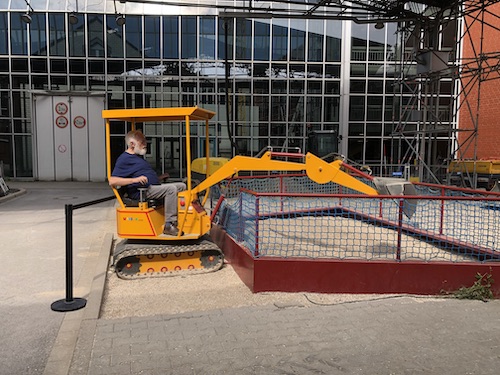
Since we cannot get to Düsseldorf until late in the afternoon, we decide to visit a technical museum, also in Dortmund. DASA is Germany's largest exhibition on the world of work: covering an area equivalent to two football pitches, it contains a variety of exciting interactive experiences for visitors to discover and get involved in.
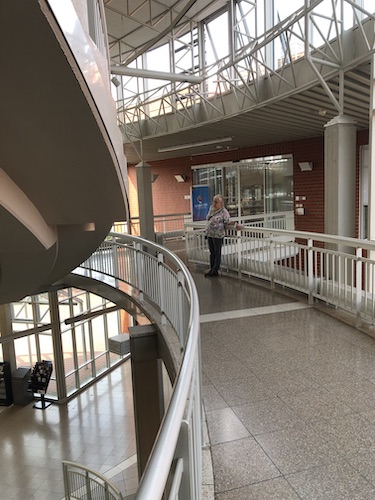
Although the building is beautiful and the exhibits are of high quality, the whole thing is very alienating due to an absolute lack of explanation. Presumably, the museum has been set up for professionals, occupational health and safety doctors, safety advisers, etc.
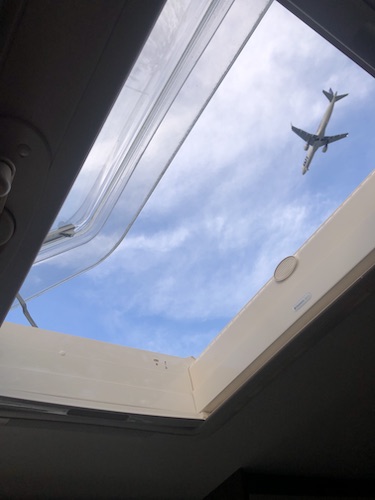
Arriving at the fair in Düsseldorf (for the 10+th time) we hear and see the familiar planes, on finals to DUS. However, there seem to be fewer aircraft movements this year than in previous years.
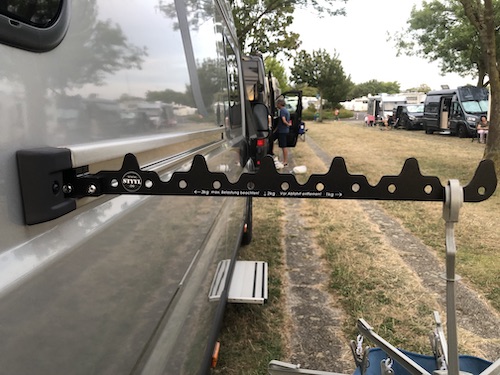
One of the innovations we see is this rod for hanging up laundry. Unfortunately, it cannot be found at the fair itself...
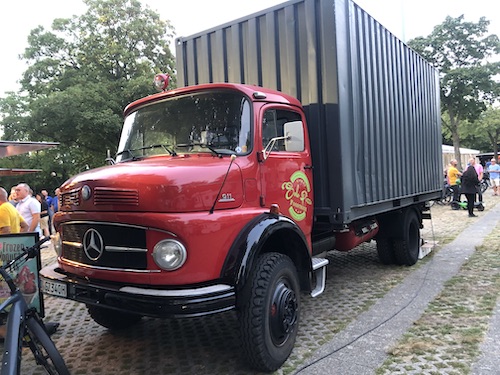
This Kurzhauber could be made into a great motorhome... But the pizza chef had other plans.
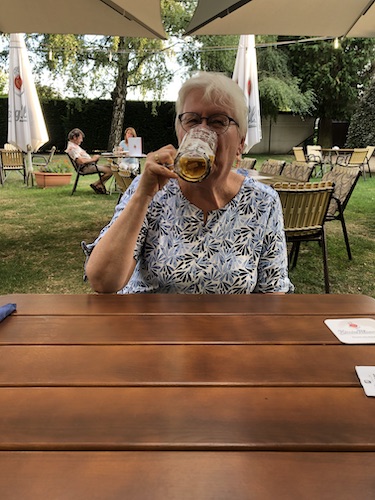
After two days of the fair, we slowly make our way home. At the Greek restaurant Artemis in Willich, camper van owners are allowed to stay the night, in exchange for their patronage.
The weather calls for a cool drink with the meal.
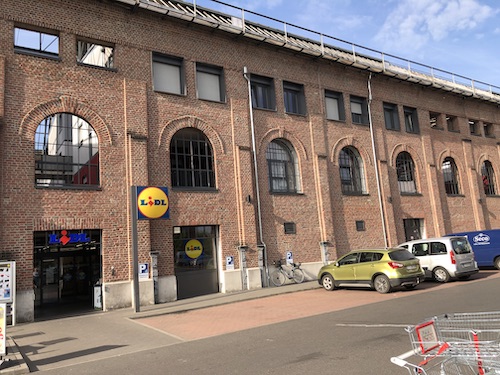
If you are in Germany anyway and you don't do any shopping, you are a thief of your own wallet. This discounter is in a very intriguing building.
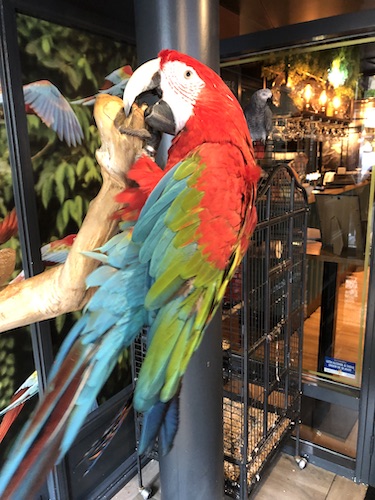
In Leek, only 12 km from Haulerwijk, we discover a - for us new - pleasant restaurant. Many of the decorations are under the sign of the parrot. When you enter, you are welcomed by two living specimens. 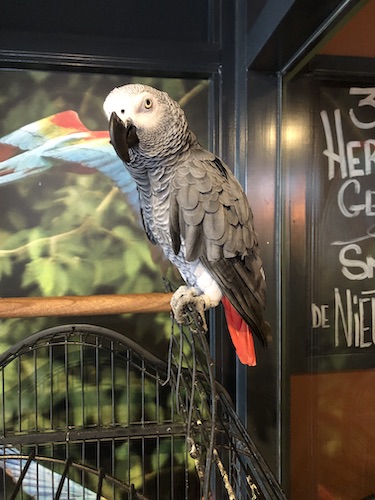
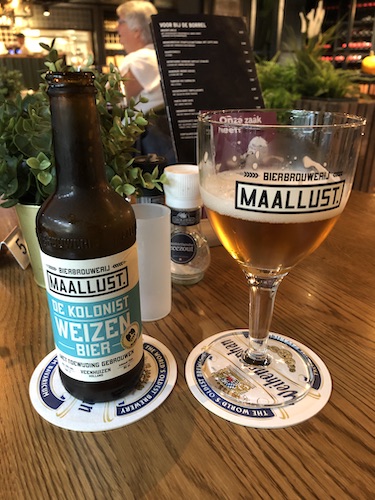
They serve a very tasty wheat beer, which is brewed in Veenhuizen, adjacent to Haulerwijk.
